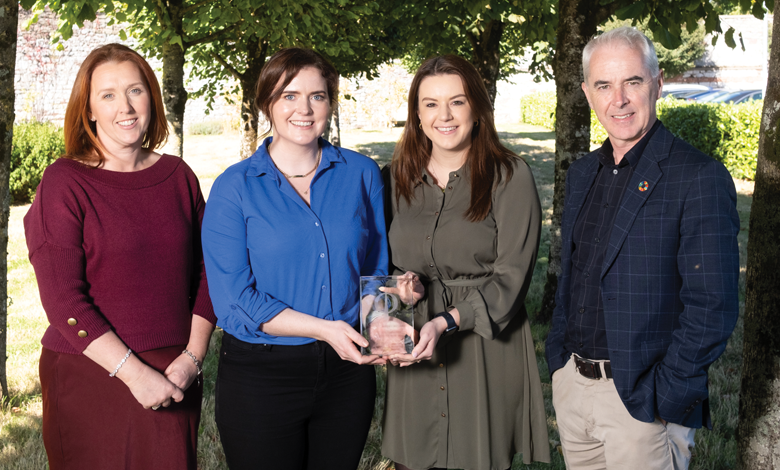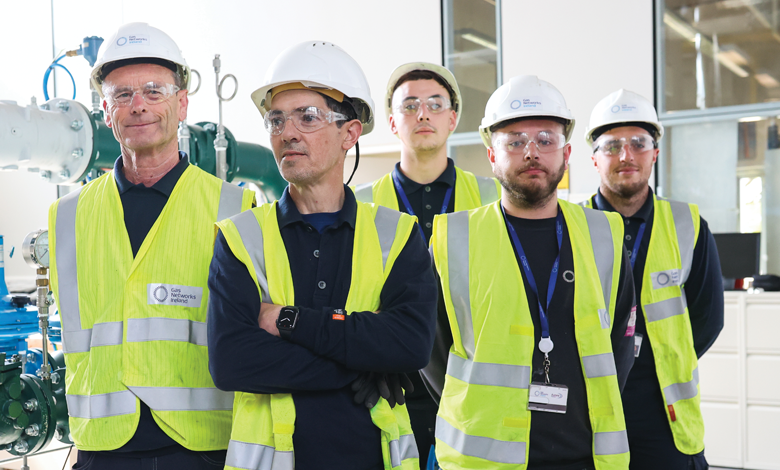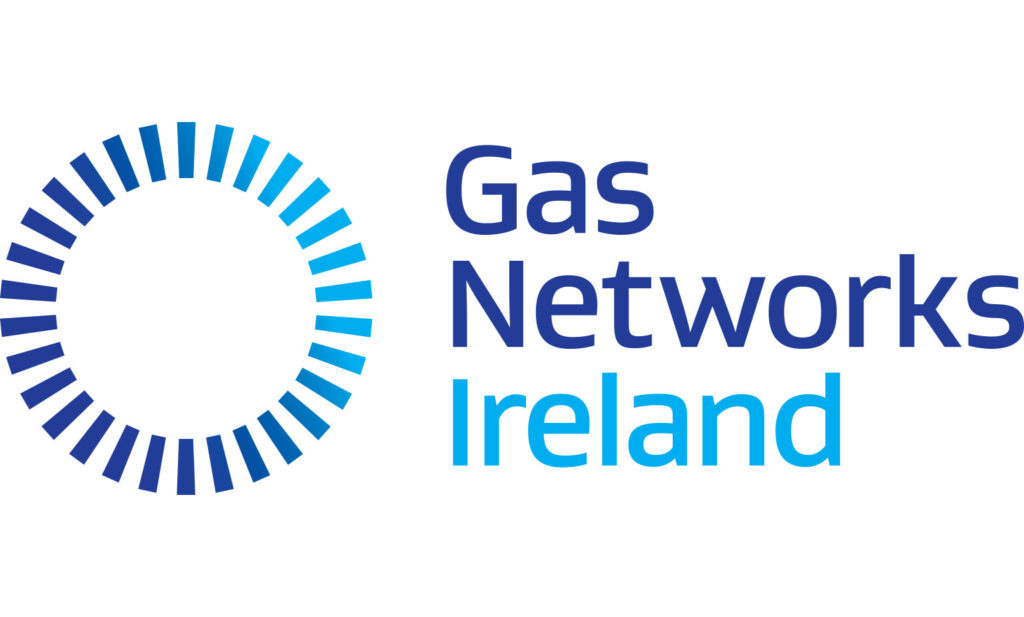Decarbonisation of Ireland’s assets: Gas Networks Ireland’s resilient infrastructure and skilled workforce

Ireland’s energy landscape is undergoing a profound transformation as the country commits to a sustainable, decarbonised future. At the heart of this change lies Gas Networks Ireland’s national gas infrastructure—a €3 billion asset that spans 14,725km of pipeline and its highly skilled workforce. Together, these resources are central to the resilience of Ireland’s energy system and its pathway toward a net zero carbon future. “
Ireland’s energy future depends on a resilient, decarbonised gas network, and Gas Networks Ireland is playing a central role in making that vision a reality. Through strategic investments in infrastructure and the development of renewable gas technologies, the organisation is laying the foundation for a net zero carbon future. At the same time, its skilled workforce is being equipped with the training and resources needed to support this transition, ensuring that Ireland’s gas network remains a safe, reliable, and innovative asset for decades to come.
Gas Networks Ireland’s ongoing projects, including the integration of biomethane and hydrogen into the national grid, are evidence of the organisation’s commitment to sustainability. As Ireland progresses toward its net zero target, the role of the gas network will evolve, supporting backup power generation, renewable heat, and potentially even energy exports.
This transformation not only aligns with Ireland’s climate goals but also reinforces Gas Networks Ireland’s commitment to sustainable development, a pledge recognised with the organisation’s recent appointment as a United Nations Sustainable Development Goals (UNSDG) Champion. As part of this initiative, Gas Networks Ireland continues to demonstrate how the responsible management of energy resources can significantly contribute to global climate action, aligning with the UNSDG’s focus on affordable and clean energy (Goal 7) and climate action (Goal 13).
A resilient network for the future
Ireland’s gas network has long been a cornerstone of the nation’s energy supply, delivering 30 per cent of its core energy demand, 40 per cent of its heat, and supporting nearly 50 per cent of electricity generation. On days when wind and solar energy are unavailable, this network provides up to 90 per cent of Ireland’s electricity through flexible, reliable backup power generation. However, as the country embarks on its decarbonisation journey, Gas Networks Ireland has a dual mission: to maintain this essential service while transitioning to renewable gases such as biomethane and green hydrogen.
The capital expenditure (CAPEX) allocated for these efforts in recent years underscores Gas Networks Ireland’s commitment to future proofing the network. In 2023 alone, substantial investments were directed toward upgrading the existing infrastructure and supporting the transition to renewable gas. By ensuring that its pipeline system is capable of transporting renewable gases without significant modifications, Gas Networks Ireland is positioning itself as a leader in Europe’s green energy transition. The organisation is also laying the groundwork for new asset development, which includes the design, testing and construction of biomethane central grid injection facilities and hydrogen-ready infrastructure.
These investments are driven by a vision for 2045, outlined in Gas Networks Ireland’s Pathway to a Net Zero Carbon Network. This strategy details how the network will evolve to carry only renewable gases, supporting the country’s Climate Action Plan targets. Over the next two decades, the network will be pivotal in supporting both electricity generation and the decarbonisation of heat and transport, ultimately reducing Ireland’s reliance on fossil fuels.
Investing in Ireland’s robust and resilient gas network
Ireland’s gas network continues to demonstrate its reliability by ensuring customers receive a safe, reliable and secure supply of energy. The network is sustained by comprehensive maintenance and capital programmes.
In 2023, Gas Networks invested around €150 million in critical infrastructure, making significant progress in its capital and maintenance programmes. The company completed 98 per cent of all planned maintenance, including key repairs at compressor stations in southwest Scotland. It responded to 14,856 publicly reported gas escapes, with 99.9 per cent addressed within the one hour target. Remedial works were completed on 50 multi occupancy buildings, and leakage surveys were carried out across 2,264km of mains and services.

Notable 2023 CAPEX projects include:
• construction completed on three new connections for power stations: Grange Backup Power (Grangecastle, Dublin), ESB Poolbeg, and ESB Ringsend;
• construction started on a new connection to ESB Corduff power station;
• a capacity upgrade of Kilshane above ground infrastructure (AGI) was completed and commissioned;
• construction began on a capacity upgrade at Ardree AGI;
• upgrades to electrical switchgear commenced at Brighouse Bay Compressor Station in Scotland;
• refurbishment works were completed at Beattock Compressor Station and Brownsbarn AGI;
• over 8km of distribution pipeline reinforcement was completed; and
• two compressed natural gas (CNG) stations were commissioned.
2024 strategic priorities
Throughout 2024, Gas Networks Ireland has continued to create meaningful value for the people of Ireland and ensure the steady flow of energy, playing a key role in the transition to a low carbon energy system.
Gas Networks Ireland is conducting further research on the technical and safety feasibility of injecting green hydrogen into Ireland’s gas network, utilising its ‘off-grid’ network at its Network Innovation Centre. The company is also developing a hydrogen safety and technical roadmap, including future hydrogen trials, while working with government bodies and other stakeholders to advance the National Hydrogen Strategy.
Progress continues toward achieving the Government’s target of 5.7 TWh of biomethane on the network by 2030, with Gas Networks Ireland confident that this goal is achievable with the necessary support.
In May, Gas Networks Ireland and Bia Energy agreed a significant partnership to enable the direct injection of renewable biomethane gas produced from food waste at Bia Energy’s new €60 million anaerobic digestion facility in Huntstown, County Dublin directly into the national gas network. The agreement was signed shortly after the Government published its National Biomethane Strategy and marked an important milestone in the development of Ireland’s renewable energy sector.
Ireland is almost unique in the European Union in having no strategic gas storage facilities and this over-reliance on a single source of natural gas makes Ireland susceptible to supply disruptions, whether that being due to infrastructure interruption or market dynamics. Any disruption of gas from the UK, could result in curtailment of gas fired generation, resulting in inevitable electricity shortages and damage to the economy/wider society.
Although a disruption to Ireland’s supplies of gas is considered to be unlikely, this is one of the key reasons Gas Networks Ireland believes that gas storage is required, and in parallel is working hard to develop an indigenous biomethane industry, which would not only support the decarbonisation of the agricultural sector, but also ensure diversity of supply as the Corrib gas field depletes over the coming years.
In line with the Government decision to develop a state-led Strategic Gas Emergency Reserve, Gas Networks Ireland, as the independent gas transmission system operator (TSO), is preparing a detailed proposal for a reserve that will provide Ireland with an immediate source of emergency gas in the event of an outage or disruption to the current supply.
A strategic gas emergency reserve is a gas storage facility that will provide Ireland with an immediate source of emergency gas in the event of an outage or disruption to Ireland’s current gas supply as the country transitions to more renewable sources.
Gas Networks Ireland remains committed to putting customers at the heart of its business by delivering excellent service while advancing its sustainability agenda. It aims to operate in a way that protects the environment and supports the social and economic development of the communities it serves, all while maintaining a competitive, efficient gas network that contributes directly to Ireland’s emission reduction targets.
Strategic projects driving decarbonisation
A key part of Ireland’s energy transition is the integration of renewable gases into the existing gas network. Biomethane, a carbon neutral gas produced from organic waste, is already on Ireland’s network. To achieve the Government’s target of 10 per cent of gas on the network to be biomethane by 2030, Gas Networks Ireland is constructing a central grid injection facility in Mitchelstown, County Cork, where the gas is compressed and injected into the national grid. These facilities will allow farmers, waste processors, and energy producers to contribute to the decarbonisation effort, with significant environmental and economic benefits.
In addition to biomethane, green hydrogen is set to play an increasingly important role in Ireland’s energy future. Produced by using renewable electricity to split water into hydrogen and oxygen, green hydrogen can provide a carbon free alternative to natural gas in industrial processes that require high heat. Gas Networks Ireland has been conducting off grid testing at its Network Innovation Centre in Dublin to assess the feasibility of transporting hydrogen through its pipeline system. Early results are promising, indicating that the existing infrastructure can carry green hydrogen with minimal modification.
The development of hydrogen infrastructure will likely result in a parallel system: biomethane for the distribution network and hydrogen for large energy users. This division will ensure that Ireland’s gas network can meet the diverse energy demands of different sectors while maximising the potential of renewable gases. Gas Networks Ireland is also exploring the possibility of exporting green hydrogen to the UK via the existing interconnectors with Scotland, further integrating Ireland into the European energy market.
Supporting renewable backup power
As Ireland continues to expand its renewable electricity generation capacity, the need for flexible, backup generation has never been greater. The Climate Action Plan calls for at least 2 GW of new flexible generation capacity by 2030, and Gas Networks Ireland is at the forefront of this effort. Several projects are already underway to connect backup power stations to the gas network, ensuring that Ireland has a reliable source of electricity when renewable sources are unavailable.
One such project is the conversion of Bord na Móna’s 116 MW power station in Edenderry, County Offaly, from diesel to natural gas. This transition will reduce the plant’s emissions by 40 per cent, with further reductions expected as biomethane and hydrogen become more widely available. To facilitate this shift, Gas Networks Ireland will construct a 23km pipeline to connect the station to the national gas network.
By 2030, Gas Networks Ireland expects to deliver new connections to multiple backup generation stations, with some projects already in the design phase and others nearing completion. These efforts are critical to balancing Ireland’s electricity grid as renewable energy sources like wind and solar fluctuate throughout the year.
The people behind the pipes
While Gas Networks Ireland’s pipeline network forms the physical backbone of the energy transition, it is the organisation’s workforce that drives its success. Gas Networks Ireland has built an expert team with the knowledge and experience to manage the complex systems required to deliver gas securely and reliably. As the company transitions to renewable gases, it will continue to leverage this expertise while adapting to meet new challenges.
Recognising the skills gap in the renewables and cyber security sectors, Gas Networks Ireland has already taken steps to address these emerging needs. Through graduate and apprenticeship programmes, the organisation is training the next generation of energy professionals. These programmes cover a range of skills, from mechanical automation and maintenance fitting to electrical instrumentation and plumbing, ensuring that apprentices receive both hands on training and classroom based learning.
By partnering with educational institutions and SOLAS, Ireland’s further education and training authority, Gas Networks Ireland ensures that its apprentices are trained to the highest standard. Upon completion of the four year programme, participants receive a Level 6 Advanced Certificate Craft, a nationally and internationally recognised qualification. This investment in workforce development is essential to ensuring that Gas Networks Ireland has the technical skills required to maintain and expand its renewable energy assets in the years to come,
A commitment to workplace wellbeing and inclusion
Beyond technical training, Gas Networks Ireland is committed to fostering a supportive and inclusive work environment. This commitment is demonstrated through various workplace wellbeing initiatives, including the Time to Talk, Work Safe Home Safe, and Occupational Health and Wellbeing programmes. In 2023, Gas Networks Ireland took its workplace wellbeing efforts a step further by achieving the KeepWell Mark, a national accreditation for excellence in employee health and wellbeing. This holistic programme evaluates workplace initiatives across eight key areas, and Gas Networks Ireland’s success in achieving this mark underscores its dedication to employee welfare.
In addition to wellbeing initiatives, Gas Networks Ireland has launched a series of policies aimed at fostering diversity and inclusion within the organisation. The iBelong programme, overseen by the Diversity and Inclusion Council, includes several employee resource groups focused on issues ranging from gender equality to neurodiversity. Through networks such as the Women’s Network, Rainbow Network (LGBTQ+), and the Culture and Ethnicity Network, Gas Networks Ireland promotes an inclusive culture where all employees can thrive.
W: www.gasnetworks.ie






